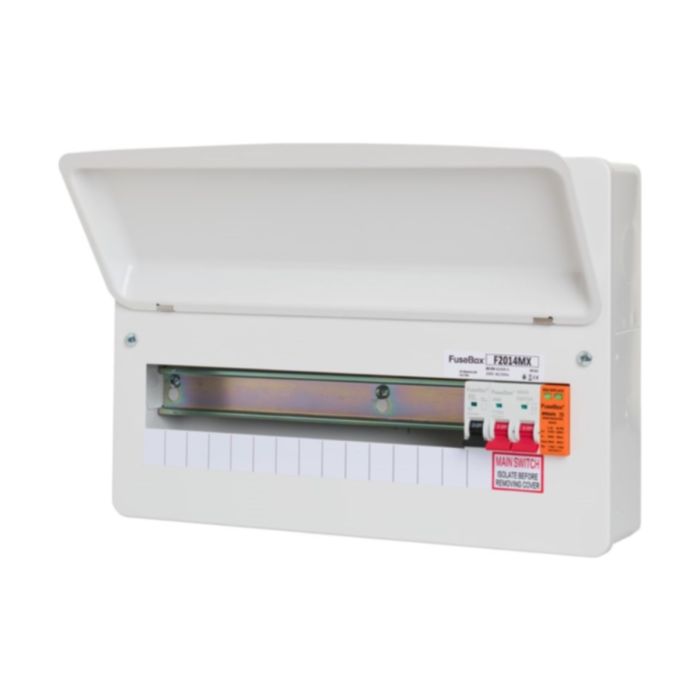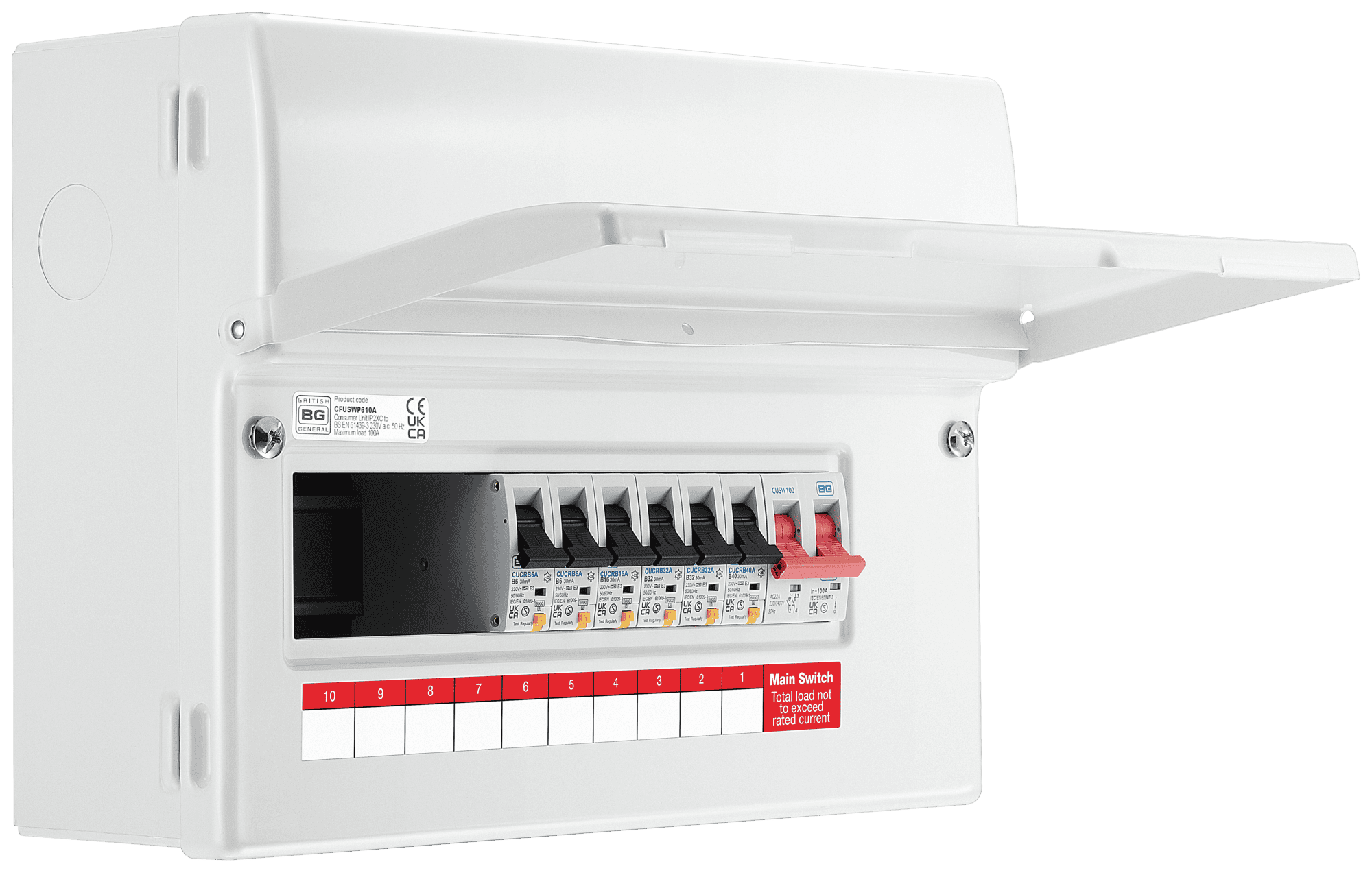Discovering the most up to date Innovations in RCBO CONSUMER UNITS Technology
Discovering the most up to date Innovations in RCBO CONSUMER UNITS Technology
Blog Article
The Role of Customer Units in Effective Energy Monitoring Equipment
Customer units are indispensable to efficient energy administration systems, offering as the primary distribution points for electrical power within frameworks. The advent of wise technologies has actually better boosted their capability, enabling for real-time information tracking and nuanced energy usage analysis.
Understanding Consumer Devices

Comprehending the duty of customer systems starts with acknowledging their important feature in guarding electric systems. By isolating faults within specific circuits, customer devices stop extensive blackouts and potential fire hazards. This isolation is accomplished through making use of breaker that trip or merges that impact when a fault is detected, thereby reducing off the electrical flow to the affected circuit.
Furthermore, customer systems help with the orderly distribution of power, boosting the efficiency of power use. They allow for the systematic management of electrical lots, which can be particularly important in industrial and business settings where demand can fluctuate considerably. Correctly conserved customer units contribute to the longevity of electrical systems and assist in reducing downtime caused by electric failures, ultimately sustaining the seamless operation of energy-dependent centers.
Smart Technologies Integration

A vital advantage of clever consumer devices is their capacity to take advantage of advanced formulas and artificial intelligence for anticipating analytics. This enables for preemptive adjustments based upon usage patterns, weather condition projections, and various other variables, dramatically raising total effectiveness. Moreover, wise consumer systems assist in need response programs, where power usage can be dynamically readjusted throughout height periods to maintain the grid and minimize costs.
The assimilation of sustainable energy resources, such as solar and wind, is likewise structured through clever consumer units. By wisely handling the intermittency of these resources, these units guarantee a dependable and balanced power supply. Additionally, wise customer systems improve individual interaction by giving detailed insights and push-button control abilities through mobile applications, cultivating a much more positive technique to energy preservation and sustainability.
Tracking Power Intake
Structure on the capabilities of clever innovations combination, checking power intake becomes a crucial focus within power monitoring systems. Effective tracking serves as the foundation for recognizing power inefficiencies and implementing rehabilitative actions. By leveraging advanced metering infrastructure (AMI), real-time information on energy use can go to my site be accumulated at granular degrees, offering valuable understandings right into usage patterns and peak demand durations. This data-centric technique makes it possible for both customers and energy supervisors to make educated decisions targeted at reducing waste and boosting general effectiveness.
Smart meters and Net of Things (IoT) tools play a pivotal role in this tracking process. These gadgets can track power use in real-time, transferring data to centralized systems for analysis. The accumulated data is then refined with sophisticated algorithms to spot anomalies, forecast future intake, and suggest optimization techniques. In addition, cloud-based services use scalable systems for keeping and analyzing large datasets, promoting remote monitoring and control.
The assimilation of these technologies not just equips consumers with in-depth details concerning their power use yet likewise sustains utility providers in managing lots circulation better. Ultimately, exact and constant surveillance is crucial for achieving energy performance, cost savings, and sustainability goals within energy management systems.
Optimizing Home Appliance Use

One efficient technique entails determining optimal and off-peak hours to change energy-intensive activities, such as washing or dishwashing, to times when power need is lower. This not only minimizes strain on the grid however likewise profits from reduced energy tariffs. Additionally, integrating artificial intelligence formulas permits anticipating upkeep, guaranteeing devices run at ideal effectiveness and extending their lifespan.
Power monitoring systems can additionally include user-specific preferences and behaviors to tailor home appliance usage routines. Wise illumination systems can readjust illumination based on occupancy and all-natural light schedule, while A/c systems can preserve convenience degrees without too much energy use.
Supporting Sustainability
Advertising sustainability within power management systems includes not only boosting performance yet additionally promoting eco accountable methods. Consumer units are indispensable to this procedure, as they offer real-time data and control devices that enable customers get more to keep track of and minimize their energy consumption. By leveraging advanced innovations, customer systems can identify energy-saving opportunities and assist in the assimilation of sustainable power sources like solar and wind power.
One crucial element of promoting sustainability is educating customers on the benefits of responsible energy learn the facts here now usage. With thorough insights provided by customer devices, individuals can make informed choices that reduce their carbon footprint. For example, these devices can suggest optimum times for operating high-energy home appliances based upon grid need and renewable resource availability, consequently decreasing reliance on nonrenewable fuel sources.
Furthermore, customer devices support the fostering of wise grid innovations, which improve the general effectiveness and dependability of energy distribution. By enabling two-way communication between customers and energy providers, these systems can dynamically adapt to power needs, minimizing waste and promoting using sustainable energy methods.
Final Thought
Consumer systems, as integral components of energy monitoring systems, dramatically boost electrical safety and efficiency within buildings through circuit defense and smart modern technology combination. Additionally, the unification of renewable power sources advertises lasting methods, adding to reduced total energy consumption and reduced carbon impacts.
Advancements in smart modern technologies have actually revolutionized the capacities of power management systems, particularly through the combination of smart consumer devices.Structure on the capacities of wise modern technologies integration, checking energy intake comes to be a critical focus within energy management systems.Efficient home appliance use optimization is an important element of power management systems, intending to boost performance and minimize unneeded energy intake.Consumer units, as integral elements of energy administration systems, substantially boost electric safety and effectiveness within buildings via circuit protection and clever modern technology integration. Additionally, the consolidation of eco-friendly power resources promotes sustainable techniques, contributing to minimized general power intake and reduced carbon footprints.
Report this page